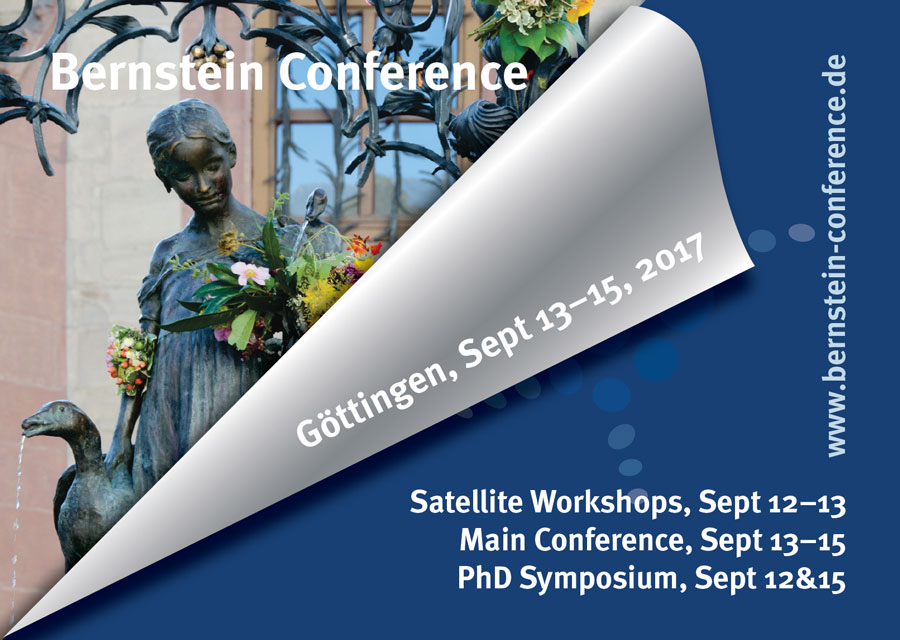Göttingen
Date
Sep 12 – 15
Abstracts
Invited Lectures
Kenneth Miller | Columbia University, New York, USA
The Stabilized Supralinear Network, or, The Importance of Being Loosely Balanced
Niels Birbaumer | Universität Tuebingen, Tuebingen, Germany
Abolishment of the locked-in state with a Brain-Machine-Interface (BMI) (in German)
Richard Hahnloser (University of Zurich and ETH Zurich, Zurich, Switzerland)
Songbirds’ solution to an intractable motor learning problem
Anne Churchland (Cold Spring Harbor Laboratory, New York, USA)
Single-trial decisions are accurately predicted by inhibitory neural population activity
Adrienne Fairhall (University of Washington, Seattle, USA)
Control of variability in motor learning
Robert Gütig (MPI for Experimental Medicine, Göttingen, Germany)
Spiking neurons can discover predictive features by aggregate-label learning
Moritz Helmstaedter (MPI for Brain Research, Frankfurt am Main, Germany)
Cerebral Cortex Connectomics
Judith Hirsch (University of Southern California, Los Angeles, USA)
Neural circuits for visual processing in thalamus
Tom Mrsic-Flogel (University College London, London, UK)
Principles of local and long-range organisation of cortical circuits
Andreas Nieder (University of Tuebingen, Tübingen, Germany)
The magical number zero
Stephanie Palmer (University of Chicago, Chicago, USA)
Understanding retinal response through the lens of prediction
Matthew Rushworth (University of Oxford, Oxford, UK)
The anterior cingulate cortex in learning and changing behaviour
Merav Stern (University of Washington, Seattle, USA)
From connectivity to rate dynamics – successes and failures of the mean-field approach
Contributed Talks
Benjamin Dann (German Primate Center, Göttingen, Germany)
Single trail population activity of the fronto-parietal grasping network evolves through three independent subspaces
Leonardo L. Gollo (QIMR Berghofer, Brisbane, Australia)
Economic and topological trade-offs in the human connectome
Ziad M. Hafed (Werner Reichardt Centre for Integrative Neuroscience, Tuebingen, Germany)
The foveal visual representation of the primate superior colliculus
Sofia Jativa (Gatsby Computational Neuroscience Unit, UCL, London, UK)
Effects of short-term plasticity on the memory lifetime of recurrent neural circuits
Wouter Klijn (Forschungszentrum Jülich, Jülich, Germany)
Visual exploration and generation of connectivity in neural networks: bridging the gap between empirical data and theoretical model definition
Hazem Toutounji (Central Institute of Mental Health and Bernstein Center Heidelberg-Mannheim, Mannheim, Germany)
A state space model for change point detection in multivariate spike count data
David E. Whitney (Max Planck Florida Institute for Neuroscience, Jupiter, USA)
High cellular and columnar variability underlies the absence of early
orientation selectivity
Sara Zanonne (Bioengineering, Imperial College London, UK)
Sequential neuromodulation of Hebbian plasticity offers a mechanism for effective reward-based navigation





